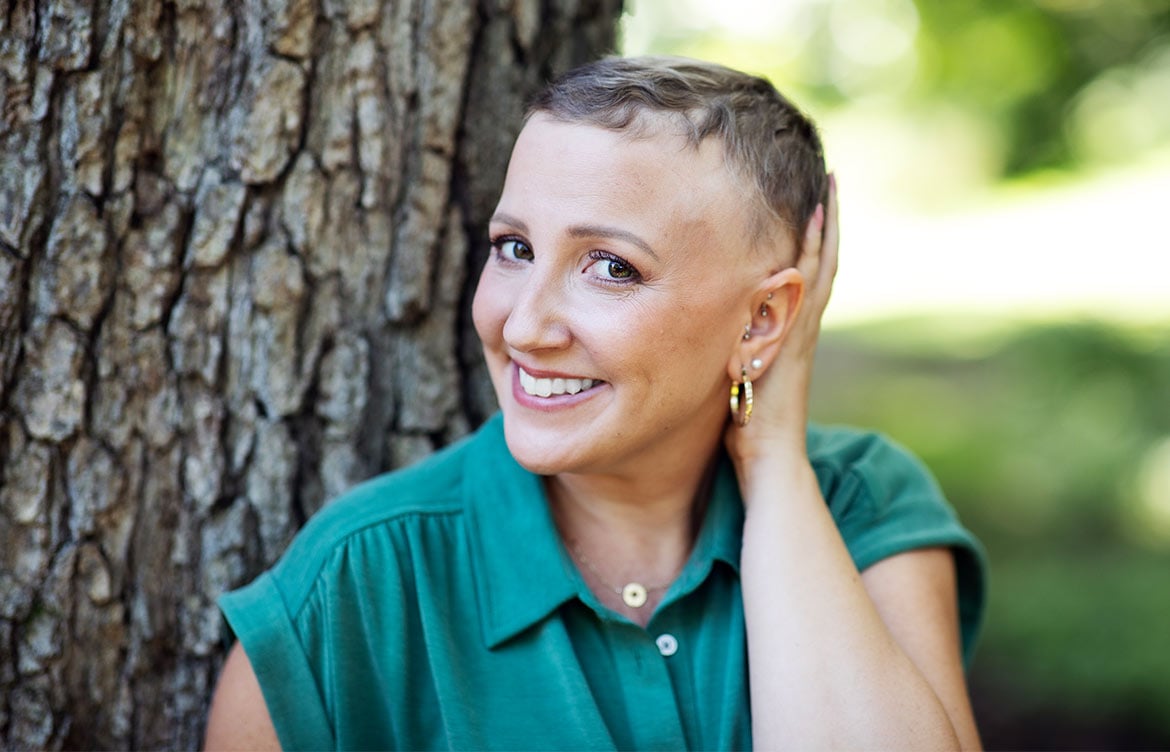Top 10 Supportive Ways to Help Someone Going Through Hair Loss

What would you say to someone close to you who’s losing their hair? You might worry about saying the “wrong” thing or feel unsure about how to really help. The truth is, showing up for someone going through hair loss means more than just finding the “right words.” It’s about understanding, listening, and supporting them in ways that help them feel valued and confident.
Daniel Alain customer Jill has firsthand experience with hair loss, having lost her hair as a child. For 25 years, she’s embraced wigs as part of her journey and has learned a lot about what real support looks like. She’ll share her insights to help you learn how to best support someone you care about who’s experiencing hair loss.
Hair loss can be an emotional journey, but with your support, they can feel stronger and more secure every step of the way. Let’s dive in and explore the top ways you can be there for them, with empathy and understanding.

"For me, having the right support through my hair loss journey has been everything. Losing my hair at 10 was tough, especially before I found wigs that felt right for me. But my family, especially my mom, stood by me from the start, accompanying me to every salon visit and making sure I never felt alone. In high school, my friends went above and beyond—they’d deflect rude comments and answer awkward questions for me so I wouldn’t always have to explain myself. Moments like that made me feel seen and accepted. Even now, on difficult days, knowing I have people who understand, who can just listen or validate that it’s hard, is a huge comfort. This kind of emotional support has allowed me to feel like myself, regardless of my hair, and that has made all the difference." - Daniel Alain customer, Jill
Be a Compassionate Listener
Simply listening without judgment can make a big difference. Allow them to express their feelings openly, whether they're experiencing sadness, frustration, or self-consciousness. Your empathy and understanding can provide a safe space for them to share their thoughts.
Learn About Their Hair Loss Experience Before Asking Personal Questions
Avoid asking sensitive questions unless they’ve shared that part of their journey with you. Instead, educate yourself about hair loss conditions like alopecia or chemotherapy-related hair loss to understand their experience better.
Remind Them It’s Okay to Have Bad Days
Hair loss can be emotionally challenging, and they don’t need to feel positive every day. Jill recommends reminding them that it’s normal to have bad days and that you’re there for them, no matter how they’re feeling.
Be Their Advocate in Social Situations
Help shield them from uncomfortable questions or comments. Just like Jill’s friends did in high school, you can step in and answer on their behalf when you sense they might not want to explain themselves, making them feel safer and more understood.
Respect Their Privacy and Boundaries
Avoid bringing up their hair loss in public or in situations where they might feel exposed. Let them lead conversations about their hair loss and be sensitive to their comfort levels. Respect their privacy as they navigate this journey.
Take an Interest in Their Hair Care Journey
If they’re experimenting with wigs for hair loss, different hair colors, or scalp treatments, show interest and excitement in their choices. Celebrate their transformations and support their self-expression to help them feel empowered.
Compliment Their Non-Physical Qualities
Recognize and celebrate qualities beyond appearance, such as their kindness, intelligence, or sense of humor. By shifting the focus to non-physical attributes, you can help them see that they are valued for much more than their hair.
Help Set Realistic Expectations for Treatments
Some treatments take time, while others may have limited effectiveness. Supporting them in setting realistic expectations can prevent disappointment and foster patience, reminding them that any progress is a positive step, even if gradual.
Encourage Patience and Positivity
Remind them that it’s okay to have tough days and that healing or adapting to change takes time. Being patient and optimistic alongside them can make the journey feel less daunting. Celebrate small milestones and progress to keep spirits high.
Be Their Cheerleader Through it All
Finally, always be their cheerleader. Encourage them, support their choices, and remind them of their strength. As Jill puts it, being someone’s supporter means validating their feelings, acknowledging the challenges, and helping them feel loved and accepted, no matter what.
How Can I Truly Support My Loved One Through Hair Loss?
If you’re reading this, you may have someone close to you who’s facing hair loss. It can be tough to know what to say or do, especially when you see them struggling with self-confidence or uncomfortable social interactions. You might feel unsure about how to help them feel better, but this article has provided you with the right tools and understanding to support them in a meaningful way.
If you’d like to learn more about human hair wigs, we have additional resources and expert guidance available. Explore our blog for articles on choosing your first wig, or advice for new wearers. Supporting someone with hair loss can be challenging, but with your empathy and knowledge, you can make a positive impact on their journey.

.jpeg)
